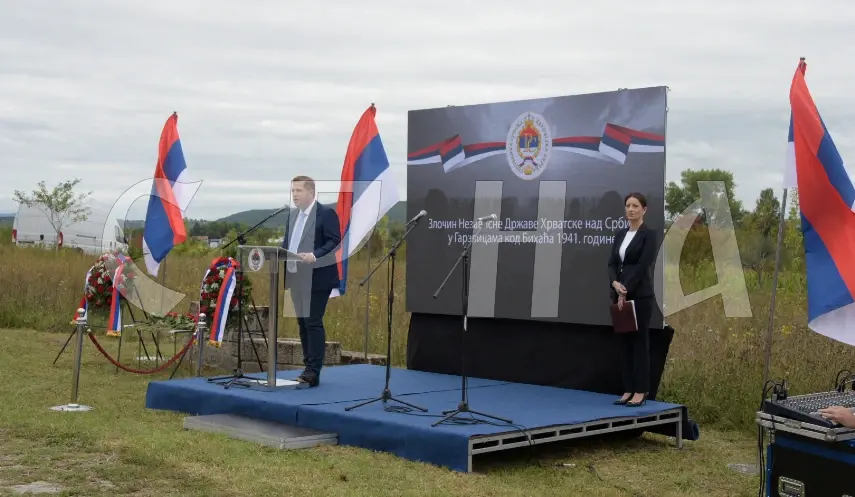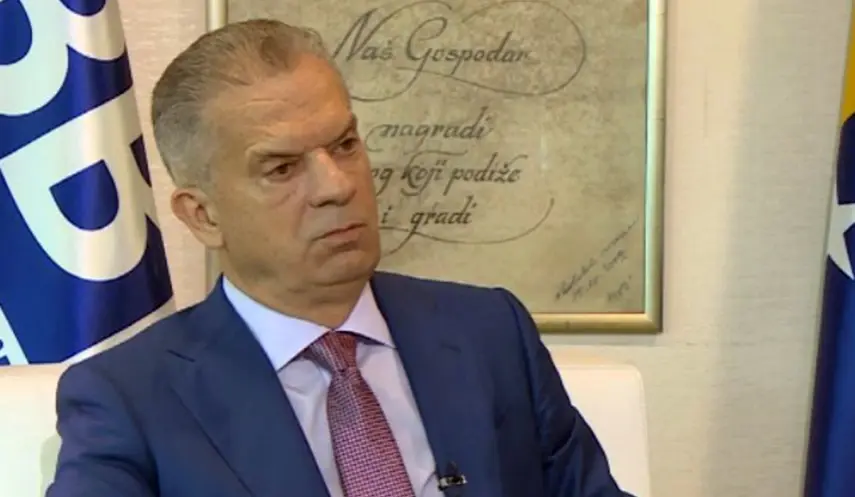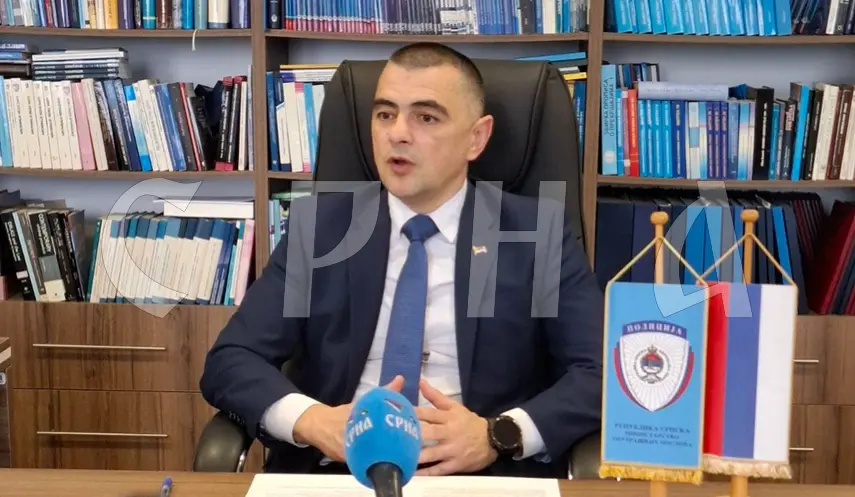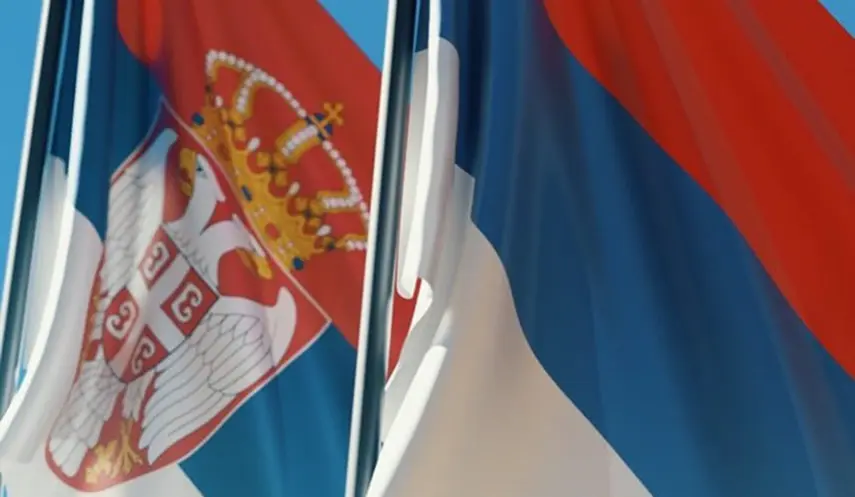VUKELIĆ: GARAVICE WARNS NO SERBS WHERE THERE IS NO REPUBLIKA SRPSKA
FBiH – Bihać – Culture of Remembrance
09/06/2025
12:58

BIHAĆ, SEPTEMBER 6 /SRNA/ – Nikola Vukelić, State Secretary in the Ministry of Labour, Employment, War Veterans, and Social Affairs of Serbia, has stated today that Garavice outside Bihać warns there is no Serbs where there is no Republika Srpska and Serb institutions, or only traces of them remain.
“This place speaks of how precious Republika Srpska is and how much we must protect it as it was Serb people's cry for freedom,” Vukelić emphasized at Garavice, where he attended a commemoration marking 84 years since the Ustaše massacre of 12,000 Serbs.
Vukelić stressed that the Serb people suffered horrific crimes and genocide during World War II, whose suffering continued in the 1990s.
“Unfortunately, today we are witnessing the strongest attack on Republika Srpska since the signing of the Dayton Peace Agreement. This attack is manifested through the targeting of President Milorad Dodik, who has been elected by the people in multiple election cycles, and whom the people recognize and want as their president,” Vukelić told the press.
According to him, part of the collective West believes that the targeting Milorad Dodik will also break Republika Srpska.
“Now we see that this was their goal even at the signing of the Dayton Peace Agreement. Republika Srpska was meant to be just a temporary entity, which they would later strip of its powers and turn into an empty shell,” Vukelić said.
Fortunately, he added, Republika Srpska has the support of Serbia, and growing support globally.
“The geopolitical balance of powers in the world is shifting drastically before our eyes, most importantly in favour of the Serb people,” Vukelić stated.
At the beginning of World War II, the Ustaše committed a massacre of the Serb civilian population, killing more than 12,000, including a large number of children and 148 Jews from Bihać.
At several mass execution sites around Bihać in 1941, more than 15,000 Serbs from the wider region were brutally murdered.
Bihać was, at the start of WWII, the administrative centre of a newly created county within the Independent State of Croatia /NDH/, called Krbava and Psat.
The newly appointed county governor Ljubomir Kvaternik, in June 1941, banned Serbs and Jews from entering Bihać and its surroundings. Soon after, persecution, imprisonment, and mass killings began.








